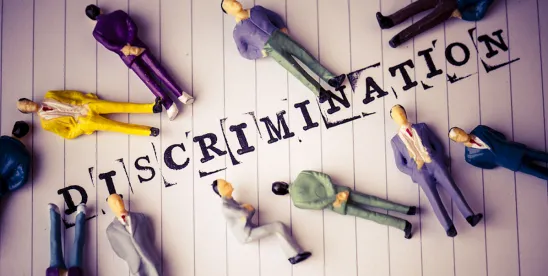The Equal Employment Opportunity Commission (EEOC) recently collected an extraordinary $2,170,000 award in a sex discrimination case.
Sarah Budd, the charging party in this case, was a clerk at SkyWest Airlines and was subjected to sexual comments during her employment. After a trial, a jury in the Northern District of Texas awarded her $2 million dollars in punitive damages and $170,000 for emotional harm.
The EEOC filed suit for sex discrimination and retaliation in the U.S. District Court for the Northern District of Texas. The Dallas-based jury unanimously found that SkyWest Airlines had subjected Ms. Budd to a hostile work environment based on her sex and failed to take prompt and appropriate remedial action to prevent the sex-based harassment.
Male managers and co-workers frequently made crude sexual remarks to Ms. Budd, who was a survivor of sexual assault. One manager suggested that she should make money through prostitution. In another instance, a co-worker stated that women who report rape do so for attention. Callous and offensive comments such as these occurred daily in the workplace and caused Ms. Budd to experience physical symptoms and mental anguish. Although she repeatedly reported the sexual harassment, the company failed to thoroughly investigate the matter.
This verdict is extraordinary as it is the largest jury trial award obtained by the EEOC in the Northern District of Texas. Although the jury awarded a large verdict, because of Title VII’s statutory caps on compensatory and punitive damages, the court reduced the award to $300,000.
What is the Equal Employment Opportunity Commission?
The EEOC enforces federal laws related to workplace discrimination based on race, color, religion, sex, national origin, age, pregnancy, disability, and genetic information. Discrimination based on sex includes discrimination based on gender identity and sexual orientation. Employers with 15 or more employees are generally covered (20 in the case of age discrimination) and the discrimination laws apply to all aspects of the workplace, including hiring, firing, promotions, harassment, training, wages, and benefits.
The EEOC ensures that employers comply with federal discrimination laws. They do so by issuing regulations and guidelines for employers as well as by investigating charges of discrimination filed by individuals.
How to File a Charge of Discrimination with the EEOC
If you believe you have been discriminated against in the workplace, it is best to contact a lawyer. However, a lawyer is not necessary to file a Charge of Discrimination with the EEOC. Employees can file a Charge of Discrimination at the EEOC on its website, by mail, or in person at an EEOC office. Generally, a charge needs to be filed within 180 calendar days from the date of discrimination. This 180 day deadline may be extended to 300 days if a state agency enforces a law that prohibits employment discrimination on the same basis. Be sure to always check the relevant laws or consult with an attorney.
What Happens After Filing a Charge?
Within 10 days of the date of filing, the EEOC will notify the employer that a charge was filed against it. The EEOC will share your name and the basic allegations of discrimination with the employer. It is unlawful for an employer to fire, demote, harass, or retaliate against an employee for filing a charge of discrimination or taking part in an EEOC investigation.
After filing a charge, you may be asked to participate in mediation with the employer which can assist the parties in reaching a voluntary settlement. EEOC mediations are not binding. In cases where mediation is not successful, or the charge is not recommended for mediation, the employer can submit a written answer to the Charge of Discrimination. You will then have an opportunity to respond as well as assist the EEOC with its investigation.
On average, EEOC investigations take approximately 10 months, but this time frame can vary. If the EEOC determines that a law was violated, the agency will attempt to reach a voluntary settlement with the employer. If this is not successful, the EEOC may file a lawsuit on your behalf. If the EEOC is unable to determine that any law was violated, the agency will issue the employee a Notice of Right to Sue. This notice gives an employee the right to file a lawsuit in court, which the individual must do within 90 days of receiving this notice.
The EEOC receives thousands of charges a year and files lawsuits for less than 1%. For context, in 2023, the EEOC received 81,055 discrimination charges and filed 143 lawsuits – a significant increase from prior years. Thus, the decision to bring suit against Sky West Airlines was noteworthy even before the jury rendered a verdict.
What Happened in the SkyWest Airlines Case?
In the SkyWest Airlines case, the EEOC determined that the company violated Title VII of the Civil Rights Act of 1964. Initially, the EEOC attempted to reach a pre-litigation settlement with the company. When this was unsuccessful, the EEOC filed a lawsuit in the U.S. District Court for the Northern District of Texas, Dallas Division. After a jury trial, the EEOC obtained its largest jury trial award in the Northern District of Texas.



 />i
/>i
